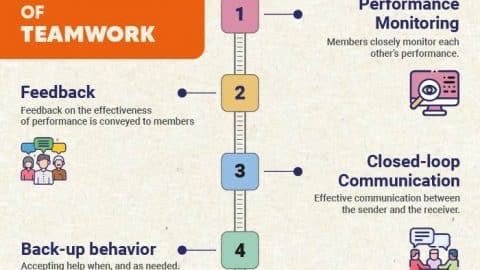In a recent survey conducted among over 2,000 Australian teachers, a resounding message has emerged: poor mental health and excessive screen time are the predominant concerns affecting young people today.
This revelation sheds light on the growing challenges facing the younger generation and underscores the need for comprehensive support systems to address these issues effectively.
Teachers on the frontline of education have observed a notable increase in stress and anxiety among their students. These emotions often stem from a multitude of pressures emanating from home and other sources.
One teacher, who wishes to remain anonymous, described witnessing a surge in emotional distress within her peers. She remarked, “There have been more noticeable moments where people are upset at school. People kind of go on nervous rants. I’ve seen some people cry in really bad circumstances.”
These poignant observations have now been substantiated by a national survey conducted among educators, revealing that the vast majority of teachers believe that poor mental health ranks as the most significant problem confronting young people today.
Poor mental health can manifest in various ways, impacting the overall well-being and development of young individuals. It often leads to symptoms of stress, anxiety, and depression, which, if left unaddressed, can have long-lasting consequences.
Young people struggling with mental health issues may find it challenging to concentrate in school, maintain healthy relationships, or engage in extracurricular activities.
Furthermore, the ongoing challenges posed by the COVID-19 pandemic have exacerbated these concerns, with lockdowns and social isolation adding to the strain on young people’s mental health.
The need for accessible and effective mental health support has never been more pressing.
Poor Mental Health and Excessive Screen Time as a Growing Concern
In addition to poor mental health, excessive screen time has emerged as another significant issue affecting today’s youth.
The prevalence of smartphones, tablets, and computers has led to an increase in screen-related activities, from social media to online gaming. While technology offers numerous benefits, excessive screen time can have detrimental effects on physical and mental health.
Prolonged screen exposure can lead to issues such as digital eye strain, sleep disturbances, and decreased physical activity. Moreover, constant exposure to digital content can contribute to feelings of social isolation and negatively impact social skills.
Educators play a pivotal role in addressing these challenges. Teachers not only provide academic instruction but also serve as mentors and sources of support for their students.
Recognizing the mental health struggles and screen time concerns faced by young people is a crucial first step in creating a more nurturing and responsive educational environment.
Schools are increasingly implementing mental health programs and resources to support students in managing stress and anxiety.
These initiatives aim to provide students with coping strategies, promote open dialogue about mental health, and reduce the stigma associated with seeking help.
Additionally, educators are working to strike a balance between technology use and healthy screen time limits.
Schools are educating students about responsible technology use and encouraging them to engage in offline activities that promote physical and emotional well-being.
The Need for Comprehensive Support Systems
The findings of the survey conducted among Australian teachers highlight the pressing need for comprehensive support systems that address the multifaceted challenges facing young people today.
These systems should encompass mental health services, counseling, and initiatives that promote healthy technology habits.
Furthermore, parents, caregivers, and communities must also play a role in supporting the well-being of young individuals.
Open and honest discussions about mental health, as well as active involvement in monitoring and guiding screen time, are essential components of a holistic approach to youth well-being.
In conclusion, the concerns raised by teachers regarding poor mental health and excessive screen time among young people underscore the importance of prioritizing the mental and emotional well-being of the next generation.
By recognizing these challenges and implementing proactive measures within schools and communities, we can work together to ensure that young individuals have the necessary tools and support to thrive in an increasingly complex world.


























